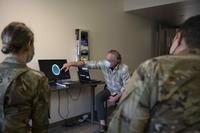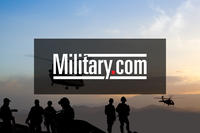NDAA Update: 12/12/2013): The 2014 National Defense Authorization Act passed the House (now on to Senate).
The National Defense Authorization Act of 2014 is very close to passing both houses of Congress. Some of the hot button issues of the last year will make it in (see Troop Pay below). Others, like the concern about closing commissaries, were not even addressed in the current NDAA.
Note: One bright spot is a provision to allow the 171,000 military retirees who were kicked off TRICARE Prime last October, a onetime shot at reenrolling. (Details to follow)
The Following “2014 NDAA Facts” were taken from the NDAA Factsheet on the House Armed Services Committee’s NDAA website. The translations are added for clarification.
- Troop Pay: The NDAA supports current law, which is intended to ensure pay for our troops keeps pace with the civilian sector, but provides the President with latitude to make exceptions by executive order. President Obama has notified Congress that he intends to use his authority to set the 2014 military pay increase at 1 percent. The NDAA neither affirms nor rejects the President’s decision.Translation: Expect to see a 1 percent military pay increase across-the-board. The increase is half a percent lower than the cost of living increase given to retirees and veterans on disability.
- TRICARE: HASC Members believe access to quality healthcare services during retirement is a benefit earned through prior service to our nation. Mindful of Congress’ commitment to servicemembers and their families, and endorsing the bi-partisan work of the military personnel subcommittee, the NDAA once again rejects all Administration proposals to increase TRICARE fees or establish new TRICARE fees. Congress has already put TRICARE on a sustainable path through reforms in several recent NDAAs. Those reforms connect TRICARE fee increases to retiree cost of living increases. DOD’s record of incorrectly calculating TRICARE costs and their repeated requests to transfer billions in unused funds out of the program to cover other underfunded defense priorities raises questions about repeated claims by the Department of Defense that the Defense Health Program is unsustainable.Translation: TRICARE premiums and fees will not be subject to further changes in 2014 – other than the automatic increases which were instituted last year.
Summary: TRICARE Hikes are off the table, the 1% Military (micro) Pay Increase is on, and there is no definitive word on Commissary Closures, (but DeCA looks safe for now).
Stay tuned for more details…




